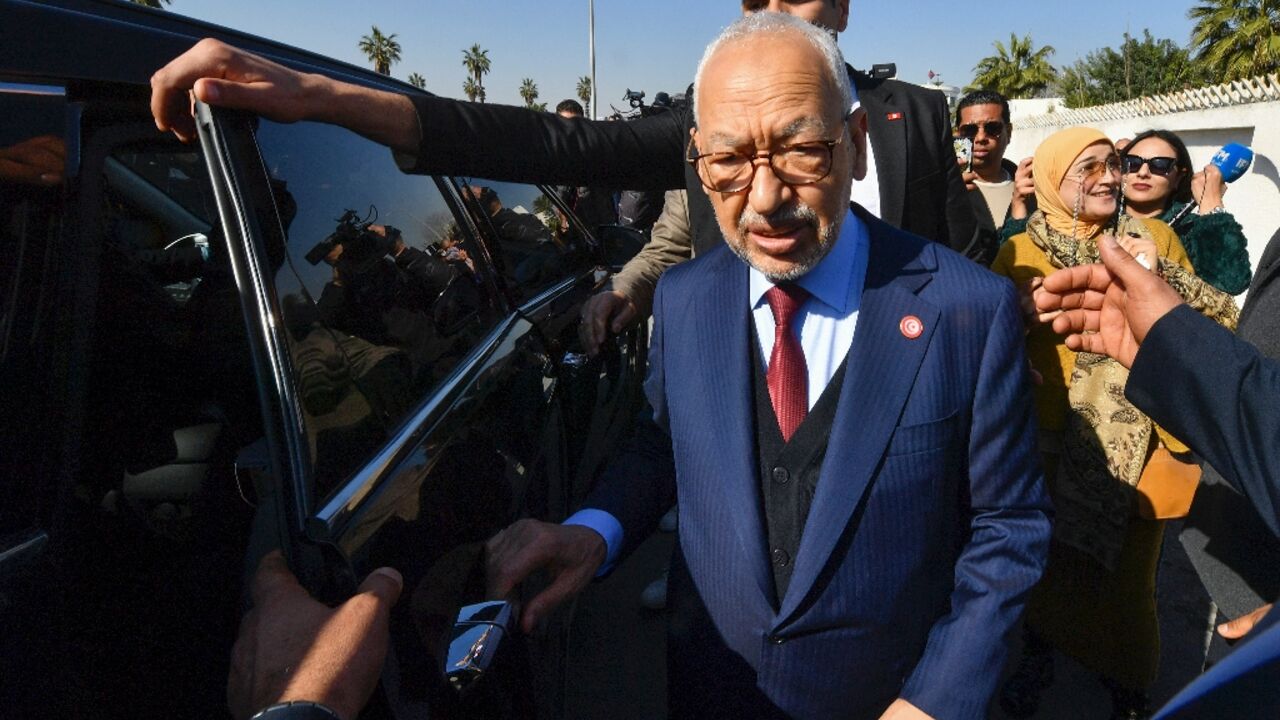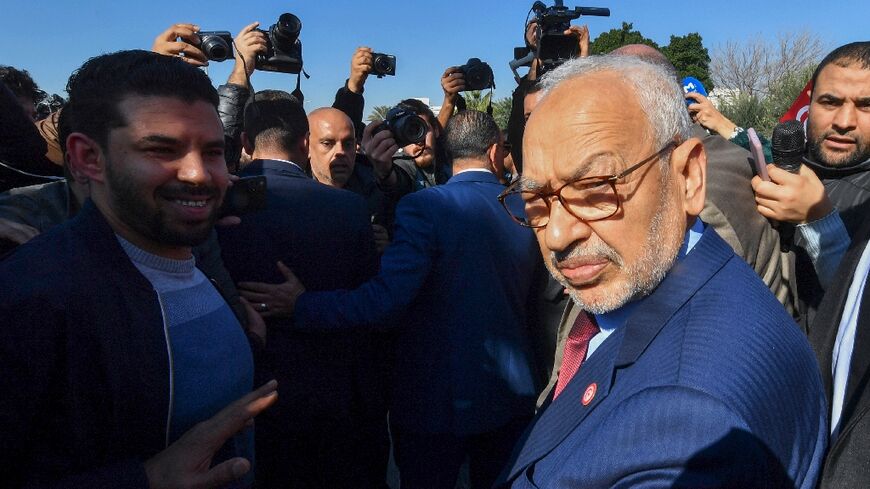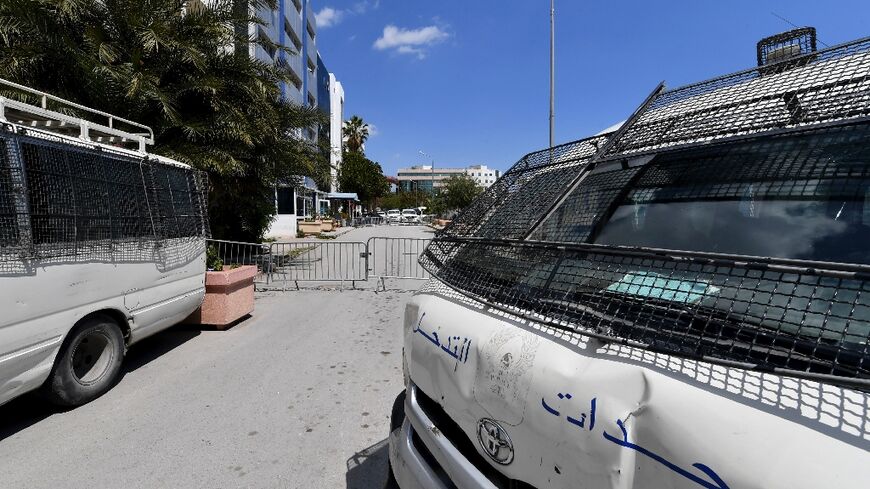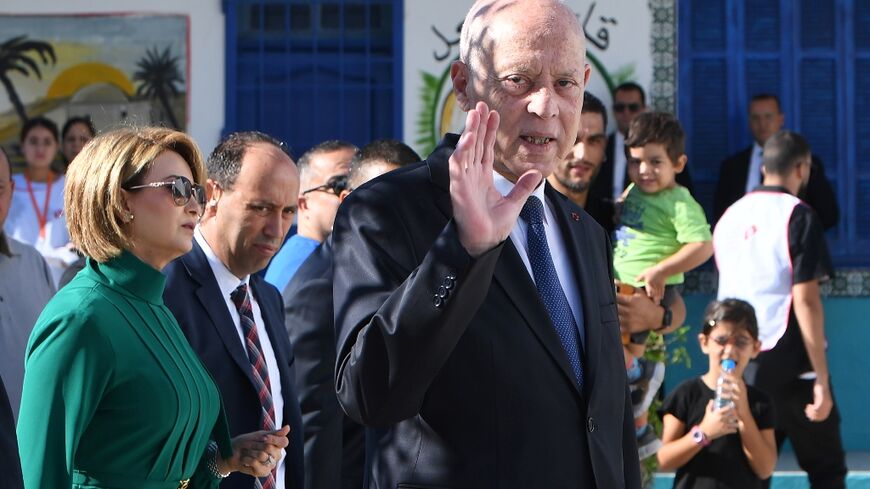Extended jail term for Tunisian opposition chief Ghannouchi

The leader of Tunisian opposition party Ennahdha, Rached Ghannouchi, 82, had his jail sentence on terrorism-related charges raised to 15 months on appeal, his party said in a statement on Tuesday.
An earlier ruling in May had sentenced Ghannouchi to 12 months in jail with the same fine of 1,000 dinars ($314).
Ghannouchi's latest sentence came following a police union's complaint accusing the opposition leader of inciting violence, after he described a former Ennahda official as a person who "did not fear the rulers or the tyrants" during his funeral in 2022.
The appeal ruling "came to expose once again the subordination of important parts of the Tunisian judiciary to the agenda of the executive authority and its desire to harass its political opponents and its use of the judiciary as a weapon against every free voice," Ennahda said in the statement.
Ghannouchi, whose party defines itself as an Islamic democratic party, was arrested last April for incitement and plotting against state security, after he made remarks in public warning that eradicating different political viewpoints, such as the left or political Islam, from which his party originated, might lead to a "civil war."
In late September, Ghannouchi, who is 82, began a hunger strike in support of other Tunisian political detainees and in protest of his own detention, which his Islamist-inspired party said was an "unjust political verdict."
Ghannouchi served as speaker of parliament from 2019 until the summer of 2021, when President Kais Saied dissolved the chamber as part of a power-grab allowing him to rule by decree.
This year has seen a crackdown on opposition figures. Since February, more than 20 political opponents and businessmen, among others whom President Saied described as "terrorists", were sent to prison on charges of "plot against internal security."
The latest opponent to be sent to jail is Abir Moussi, head of the Free Destourian Party, a movement often described as nostalgic for the dictatorship of the hero of independence Habib Bourguiba and his successor Zine El Abidine Ben Ali whose government was overthrown in 2011 in the first of the Arab Spring uprisings.





